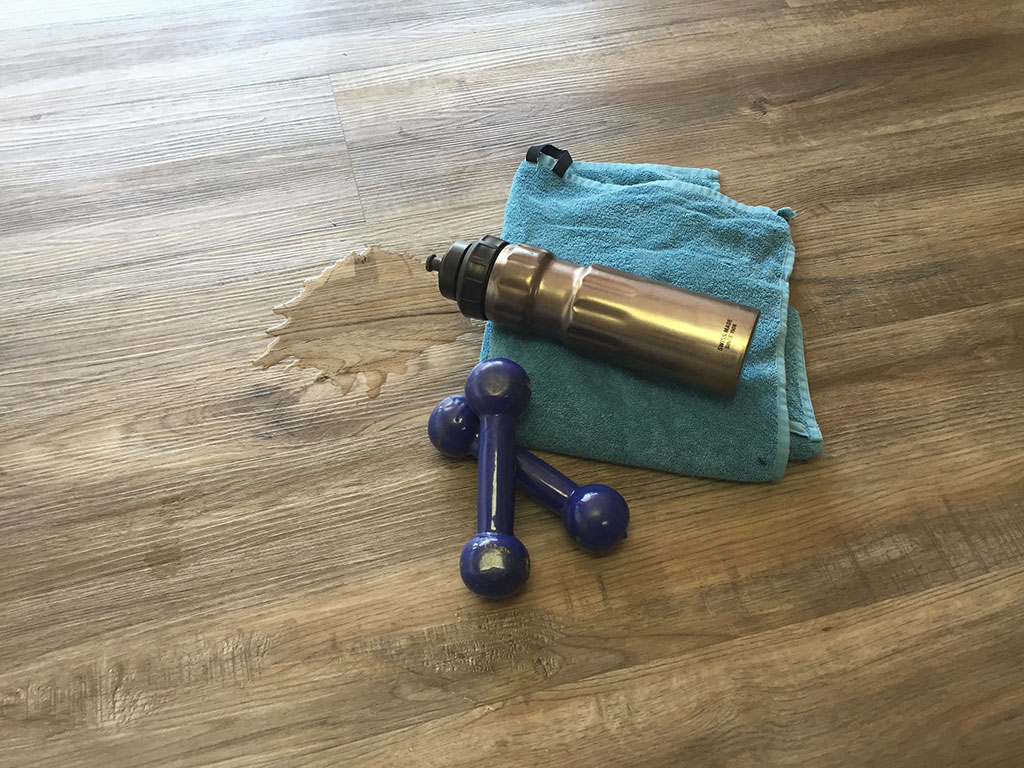There have been many points put forward about SPC (Stone Plastic Core), RCB (Rigid Core Board) Vinyl flooring, all of which are partially correct, but don’t necessarily tell the whole story. Therefore, let us attempt to clear up some of the fog surrounding these products.Vinyl flooring has always been promoted as being 100% waterproof. However, there have always been very specific installation instructions attached, which, unfortunately, are rarely read.For example, when vinyl is installed as a glue down, all retailers/installers/sales staff are aware that the screed has to be dry and free from all moisture. This is to serve some main functions, namely:
- Dry screed enables the adhesive to bond better and creates a skin to prevent moisture bleed through.
- All vinyl adhesive suppliers insist that prior to applying their respective products, that all screeds must have a moisture content/reading that is less than 3% and if these readings are greater than this a moisture barrier must be applied, to prevent moisture/water bleed through which will affect the bonding strength of their vinyl adhesive.
- Only by adding the moisture barrier can they safely say that the vinyl is water/moisture proof from “Topical Water” i.e., water/moisture from the top.
Many imported European products specify that a vapour barrier must be applied to all ground floor glue down installations. This has been a standard instruction for many years and is not only to protect against moisture/water egress from the screed, but rather to protect the vinyl material from any chemical leeching from the screeds. This instruction over time has been allowed to lapse and has become a forgotten instruction within the local market, which is always looking to save a buck.The main vinyl manufacturers have also always specified that the alkalinity readings must be measured to prevent problems, normally referred to as MVER (Moisture Vapour Emission Rate) – we also refer to an extract from the installation instructions for the Finfloor TRIOLoc Vinyl range issued in 2015 –“Moisture rising from new or old concrete can create high levels of Moisture Vapour Emissions, Hydrostatic Pressure and high levels of alkalinity. This combination is highly corrosive and will damage the flooring over time. To avoid this problem, a Calcium Chloride test and PH level test must be performed prior to installation. If the level of Vapour Emissions /Hydrostatic pressure exceeds 3.5 kg and /or the alkalinity level is 9 or higher, a moisture barrier must be present.”So, from the above, nothing has changed over the years for vinyl, be it for a floating or glue down floor.The instructions for floating vinyl floor installations have also followed the same trend of installation instructions – vapour barrier to be used/recommended when there is a high alkalinity presence, see below tables, which must always be read in unison, to make sense.
| Installation Considerations | Residential requirements | Commercial requirements |
| Vapor Barrier recommended | Painted or 200micron | Painted or 200micron |
| Subfloor RH/MVER (Moisture vapour emission rate) recommendations | 85% RH/8 lbs MVER(Moisture vapour emission rate) | 85% RH/8 lbs MVER(Moisture vapour emission rate) |
This does not mean that vinyl isn’t waterproof, it is very waterproof, when submerged in a bath of water, there is no problem, but when left on a wet screed/sub-strait, the problems are huge, very difficult, if not impossible to repair, leading to expensive replacement costs. At the same time as new players enter the sales arena, so some things are left out, to enable, in most cases the new entrants to be more competitive. Highlighting the fact that not all products are equal, but they do come at a price! Proving there is no substitute for quality.To ensure that our products meet the demanding living conditions in Southern Africa, we have always insisted that all our vinyl products must:
- Be manufactured from 100% virgin material, with the correct combination of Limestone/Calcium Carbonate.
- We do not use any floor tailing material, as this could be contaminated with other material and is often sold as virgin
- We insist on using an IXPE underlay (Irradiated Cross-Linked Polyethylene), which is the newest advance in foam technology. IXPE is a closed-cell foam that is 100% waterproof, and impervious to mildew, mould, rot, and bacteria)
- Double coat of Super UV coating = Mark free and increases the scratch/wear and stain resistance of product.
- Meets VOC emission requirements for use in home, classroom, office and commercial environments.
- Meets all international performance tests, including but not restricted to Floor Score for “Indoor Air Quality”, VOC – Volatile Organic compounds, highest slip resistance grading.
We at Finfloor have always strived to sell products that a solve our local living conditions, we don’t like selling a problem, rather a cure, that we can safely stand by.

